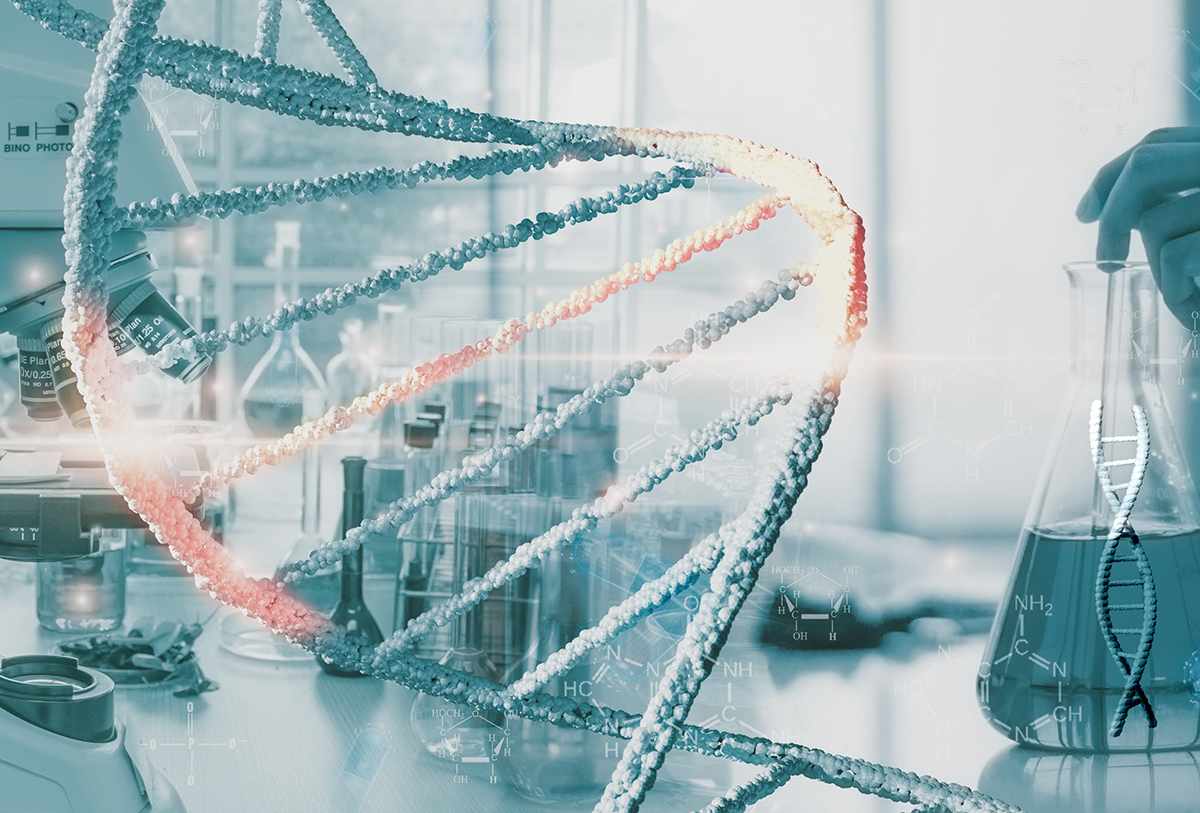
- OUTSIDE
- Special Theme _BIOMEDICAL
본문영역
Healthcare industry has emerged as a new growth engine
that creates new value in a number of countries throughout the world
Healthcare industry has emerged as a new growth engine in Korea and around the world. Although healthcare started with the biology and medical industries, it is gradually spreading to all areas of industries. After COVID-19, many companies in traditional industries, such as telecommunications, heavy industry, chemicals, and food industries began contemplating how to incorporate healthcare into their own areas.
- Written by Baek Seung-jer
-Former Assistant Professor of Otolaryngology at Catholic Kwandong University and Wonju College of Medicine of Yonsei University.
-Former medical director at Novartis Korea, and chief medical officer at Hanmi Pharmaceutical.

-the branch of study that applies engineering technology to medicine and the human body
According to the definition of Wikipedia, “Biomedical engineering (BME) or medical engineering is the application of engineering principles and design concepts to medicine and biology for healthcare purposes, including diagnosis and therapeutics.”
BME is a collective term for academic fields that apply engineering technology to medicine and the human body, and is a discipline that basically uses a scientific methodology with the aim of human application (recently, a trend that includes animals as well). In my view, if basic sciences such as chemistry, physics, and biology were created through the process of industrialization after the Industrial Revolution, along with disciplines such as chemical engineering and mechanical engineering, I think that BME is a discipline that was born by turning that interest toward people.
I think that if BME had not developed, medicine have continued using the same old tried and tested diagnostic methods (visual inspection, palpatory percussion, and medical examination by interview) used by Hippocrates 2,000 years ago and treated patients with natural herbal substances. I also think that, in a way, oriental medicine may be meaningful as a subject of study in itself, and it has been maintained in its original state without the help of BME, although efforts are now being made to develop it with the help of BME. Therefore, it can be said that the development of medicine has not been achieved by medical personnel such as doctors, dentists, and nurses alone, but complementarily together with the developers of BME. For example, since a more accurate diagnosis method has been discovered, early diagnosis can be made using it, and besides this early diagnosis, it is possible to develop or apply new treatment methods through early diagnosis, resulting in improved treatment outcomes. Accordingly, research conducted within BME warrants intensive consideration as to how it is used and what value it can deliver to the final destination, the person, within the medical environment.
Combination of science with the humanities such as sociology and psychology
The medical environment is not the same all over the world, and the accepted position differs depending on the country and society. For example, in the US, healthcare is viewed as an industry. Just as people with money drive a luxury car while people without money walk around, differentiated medical care is accepted naturally. But in the case of Northern Europe, segments of society advocate medical care to be embraced as an ideology of universal human rights or welfare entitlement for all, and work to provide the maximum amount of medical care for society.
Further discussion on this would exceed the scope of this article, but research conducted within BME should consider not only the natural environment but also the social environment, like the human factor of industrial engineering. If such considerations are not made, there is a high possibility that the process of delivering many of your excellent results to society will be encounter obstacles. Therefore, if the transition from science to industry is a combination of science and management, such as product production, BME can be said to be a combination of science and humanities such as sociology and psychology.
From this point of view, those majoring in BME should develop a variety of academic interests and gain ample experience because the field of healthcare is much broader than you think. It is involved with the development of artificial organs for the human body, surgery, diagnostic equipment, and wellness areas that include alternative medicine, nutrition, and beauty, as well as the use of logistics and digital transformation to coordinate the timely provision of such services. Conveying value to society and people in such areas requires interest in and understanding of diverse academic fields, not only psychology and psychology but also science and engineering. At the graduation ceremony at Standford University in 2005, Apple’s co-founder, Steve Jobs, talked about how the calligraphy he had learned at university was connected to Mac designs and fonts. As an engineer, it is important and fundamental to conduct good research and create excellent products, but in BME, it is important to have far-reaching insights and perspectives for B2B2C (business-to-business-to-consumer) beyond B2B (Business to Business).

A broad understanding of diverse areas is essential
As I work in the industry, I understand that many large companies and other corporations are investing in the healthcare sector, such as biology and medical equipment. In the process, in the case of pharmaceuticals, many Contract Manufacturing Organizations (CMOs) that focus on producing medicines from an engineering point of view have been emerging recently, and there are also many bio-tech companies that discover and develop new noble targets and mechanisms, and consider applying them to people. In addition, the bio-ecosystem is gradually being created as more and more companies specializing in bio materials, bio parts, and bio equipment are now supplying their services and products to bio-tech and pharmaceutical companies. In addition to this biology sector, the medical equipment industry, including dental medical equipment in particular, is also gradually imposing itself, and the field of robotics, such as exoskeletons, is also growing.
Meanwhile, the field of IVD (In Vitro Diagnostics), in which the liquid biopsy technology of Seegene or SD Biosensor is used, and which all citizens became aware of during the COVID-19 pandemic in Korea, is also growing. Furthermore, companies in conventional industries such as telecommunications, heavy industry, chemicals, and food are also contemplating how to incorporate healthcare into their own areas.
However, as I mentioned earlier, there is not a widespread understanding of diverse areas, companies will or engineer become frustrated, saying, “Why don’t people recognize such a good technology?”, whereas the society will say, “It’s difficult to understand how to use it.” Personally, I hope that UNIST’s BME talents will play a role in filling this gap.
The whole world regards healthcare as a next-generation growth engine.
Furthermore, various consulting companies are looking for healthcare consultants, but they are having difficulty in finding suitable talents. I believe that those who majored in BME have more advantages in analyzing and understanding the industry and suggesting opinions, based on the experiences mentioned above, and they are superior to others in the medical equipment and diagnostic equipment domains.
I also believe that as investments are constantly being made in the healthcare industry, as I mentioned earlier, there will be continuous demand for investors in the domain based on an understanding of where and how to invest in the financial sector. Therefore, I would like to recommend looking at the career from a broad perspective, rather than a narrow one.
Not only Korea, but also many countries around the world are talking about healthcare as a next-generation growth engine, but they rarely offer a precise explanation of it. Personally, I believe that healthcare is a huge initiative and growing trend that will affect all industries. In other words, just as digital transformation (DT), which started in the IT area, quickly spread to all sectors, healthcare, which started in the biology and medical area, will also gradually spread to every area of industry.
Biomedical Engineering


